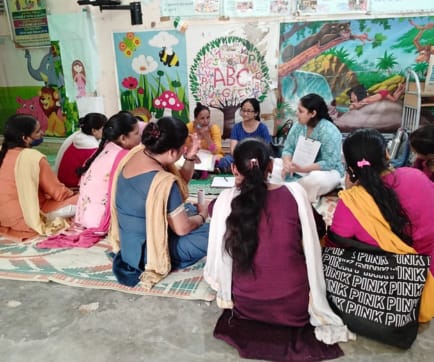
Client: ASAR Social Impact Advisors and Vital Strategies
Location: Punjab (Ludhiana), Maharashtra (Nagpur), Jharkhand (Dhanbad), Delhi (New Delhi), Madhya Pradesh (Indore), and Bihar (Patna).
Background Context: Air pollution affects the health of all populaces. Women and children are more vulnerable owing to higher exposure to household air pollution (WHO, 2021). In 2015, the Ministry of Health and Family Welfare (MoHFW) established a steering committee to understand the impact of air pollution on health issues and enable recommendations for programs and policies. Recognizing the seriousness of the issue, the Government of India also launched two policies in under three years to deal with air pollution and its health impact: National Clean Air Program (NCAP) in 2019 and National Program for Climate Change and Human Health (NPCCHH) in 2021. As NPCCHH outlines a crucial role for ASHA workers in India’s fight against air pollution, this study is an attempt to understand ASHA’s perspective on the same.
Objectives
Development Solutions was commissioned to undertake a study to understand ASHA workers’ awareness and perception of air pollution, its negative consequences on health, and their role and motivation to work on issues of air pollution. The specific objectives are:
- To understand the awareness, knowledge, and perceptions of ASHA workers on air pollution and its health implications
- To understand the implications of air pollution on the children and families of ASHA workers if any; and their role as mothers and caregivers in the context of health and air pollution
- To understand the role that ASHA workers play at present, if any; and the role they could play in addressing the health concerns related to air pollution;
- To understand the support and interventions that the ASHA workers would need to enable community awareness and action on air pollution and its health implications.
Approach and Methodology
- Method/ Design: Qualitative research
- Key Respondents/ Informants: ASHA Workers and Officials associated with the NPCCHH
- Key Areas of Inquiry: Knowledge, awareness and perception of ASHA regarding air pollution and its health impact; ASHA’s ability, motivation, and willingness to work on air pollution; the support ASHA workers received from the community; perspective of government officials on air pollution and ASHAs’ role in air pollution
- Sample: 346 (333 ASHA Workers, 13 Block/District health officials or those who have worked under NPCCHH)
Impact
The study attempts to understand the intersection of health, air pollution and the role of frontline workers, an area that hasn’t been explored enough. The study was able to help identify knowledge gaps among ASHA workers in their understanding of health and air pollution. The report will be published by ASAR Social Impact Advisors and Vital Strategies. The two clients will also be designing and implementing an intervention based on the report to be used for fund-raising activities.
